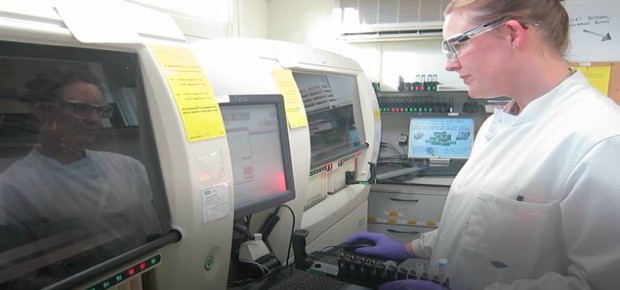 Go to Canterbury Christ CHurch University's website
Go to Canterbury Christ CHurch University's website
 Go to Canterbury Christ CHurch University's website
Go to Canterbury Christ CHurch University's website


3079
This video was taken by the team at King’s College Hospital, giving us a tour of their Blood Sciences Lab and an insight into the different roles that Biomedical Scientists have a part of the team.
You can get into this job through:
University:
Trainee:
“There are hundreds of jobs you can do in a hospital…you’ve only seen the tip of the iceberg; the possibilities are endless!”